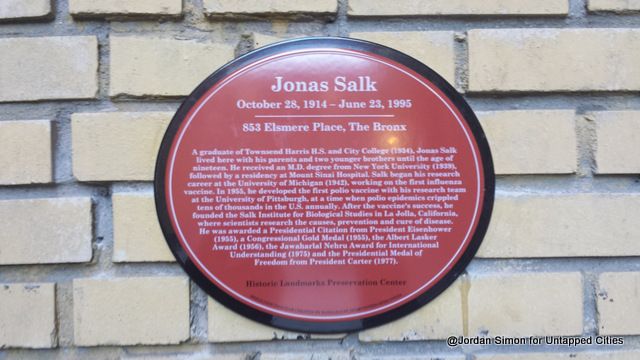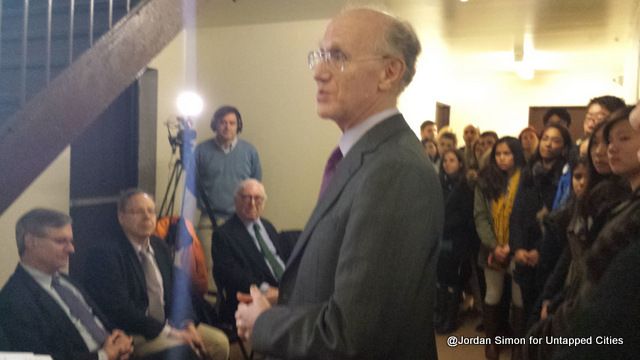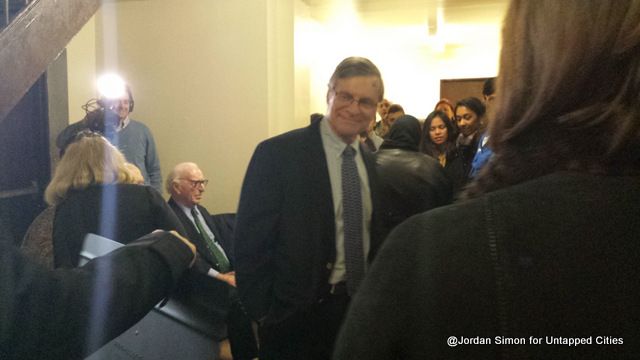NYC's Long-Awaited Davis Center Opens in Central Park
A stunning new facility at Harlem Meer opens to the public this weekend!


Last Thursday, the Historic Landmarks Preservation Center held a cultural medallion ceremony at the childhood home of world renowned scientist and humanitarian Jonas Salk, the man who developed the world’s first polio vaccine.
Born on October 28, 1914, Jonas Salk lived with his parents and two younger siblings in an apartment complex located at 853 Elsmere Place in the Bronx.Jonas Salk’s cultural medallion plaque states that, “In 1955, he developed the first polio vaccine with his research team at the University of Pittsburgh, at a time when polio crippled tens of thousands in the U.S. annually.”
Salk graduated from Townsend Harris High School in the Bronx and enrolled in the City College of New York, where he earned his Bachelor of Science degree in Chemistry in 1934. After earning a medical degree from NYU in 1939, Salk began his medical research career at the University of Michigan in 1941. Polio was regarded by many to be one of the biggest health problems in the world. Many of its victims were children and the disease gravely affected its most notable victim, former President Franklin Delano Roosevelt.

A cultural medallion plaque was paced on the childhood home of Jonas Salk, a noted virologist and medical researcher
Speakers at the ceremony included his son Peter L. Salk, Bert Hansen, a Professor of History at Baruch College, David Oshinsky, Director of the Division of Medical Humanities at NYU Langone Medical Center and Barbaralee Diamonstein-Spielvogel, the chair of the Historic Landmarks Preservation Center and creator of the HLPC cultural medallion program. Also in attendance were Carl Spielvogel, a former United States ambassador to the Slovak Republic, Debra Gardner, a historian for the Roosevelt House at Hunter College and several high school students from Townsend Harris High School.

Peter L. Salk, the son of Jonas Salk and the President of the Jonas Salk Legacy Foundation

David Oshinsky, Director of the Divison of Medical Humanities at NYU Langone Medical Center
On the Historic Landmark’s Preservation Center’s official website, it is stated that the Cultural Medallion Program was “initiated to create a sense of pride in history and of place among New Yorkers and visitors, to document significant individuals, and notable occurrences related to the City’s cultural, economic, political and social history.” Currently, there are over 100 cultural medallions in New York City, each placed on buildings connected to notable New Yorkers who have made outstanding contributions to medicine, law, government, sports, arts and sciences.
Subscribe to our newsletter